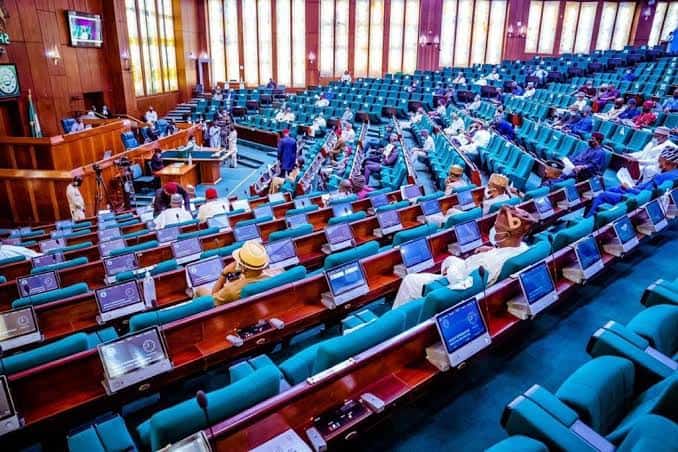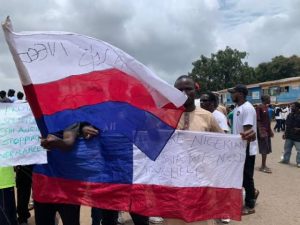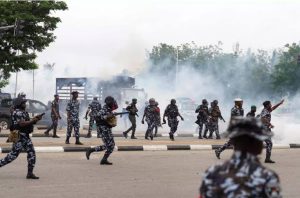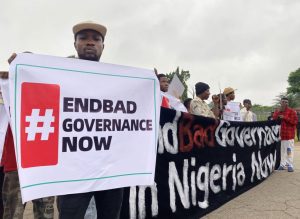
After several reports revealing the Nigeria’s security agencies’ war on the media and our latest report signalling the danger of the rising press freedom attacks on the future of journalism, Nigerian lawmakers have finally adopted a motion on the floor of the lower chamber of the national assembly, condemning the arbitrary arrests and harassment of journalists in the country. After resolving on Thursday, the House of Representatives pointed out the need to pass laws to safeguard press freedom.
Published July 4, our latest story on press freedom, revealed how the growing trend of journalists’ arrests and abductions dwindles press freedom in Nigeria and signals a serious threat to the future of journalism in the country. Hearing from the months of the journalism aspirants, the report revealed that aspiring journalists now live in fear, uninspired to further pursue a career in journalism.
While moving the motion, Clement Jimbo, a representative of Abak/Etim Ekpo/Ika Federal Constituency at the lower chamber of the National Assembly, underscored the existence of press freedom in the constitution and its significance. Among other crucial provisions is section 22 of the Nigerian constitution which empowers the media to act as a critical watchdog, holding the government accountable and providing citizens with the information they need to make informed decisions.
In the same vein, section 39 of the Constitution guarantees a fundamental right of expression, which protects journalists to carry out their activities without fear of arrest and intimidation.
Speaking on the floor of the House of Respresentative, Jimbo bemoaned the troubling increase in the number of journalists being unlawfully arrested, detained, and harassed for carrying out their professional duties while relying on the offense of Cyber-Stalking within the Cybercrimes Act, 2015.
According to him, the growing attacks threaten the very fundamental pillar of democracy, culminating in a breach of constitutionally guaranteed rights to free speech.
“Earlier this year, the president signed the Amended [Cybercrime] Act with a substantial adjustment to Section 24, which listed what constitutes cyber-stalking and provided the punishment for such offenses. However, law enforcement agents have neglected this aspect and continued their clampdown on free speech. Regrettably, at least 10 journalists have been arrested in the past year, and 15 of them in the last regime,” he said.
“The House is concerned that apart from this arrest of journalists and its consequences, it may lead to a worsening climate for investigative and independent journalism in the country’s media space, and this Fourth Republic democracy will be impugned by her admirers due to the excesses of those perpetuating this act of arbitrary absolutism.”
The lower chamber resolved to issue a stark warning to the perpetrators of the attacks, while adopting the motion and subsequently directing the House Committee on National Security and Intelligence to ensure compliance with the resolutions.
Journalism: The Pillar of Democracy
Independent media is indispensable to preserving democracy. Threats, intimidations and harassment against media personnel raise questions about what information the government might be trying to hide. Such actions erode public trust and jeopardize informed discourse.
Unfortunately, Nigeria—particularly law enforcement agencies—has become prevalent in gagging journalists. In 2023, a total of 108 cases of press attacks were documented by the Press Attack Tracker, and the latest data on the 2024 World Press Freedom Index by Reporters Without Borders (RSF), a non-profit global organization, ranked Nigeria as one of West Africa’s most dangerous and difficult countries for journalists. It placed Nigeria 112th of 180 countries with press freedom.
Despite Nigerian President Bola Tinubu’s pledge to protect press freedom, the country continues to witness unlawful arrest and detention of media practitioners. There have been 37 incidents of press freedom violations in 2024 alone, according to Press Attack Tracker (PAT), a project of the Centre for Journalism and Innovation Development that tracks, verifies and documents cases of press freedom violations in Nigeria.






